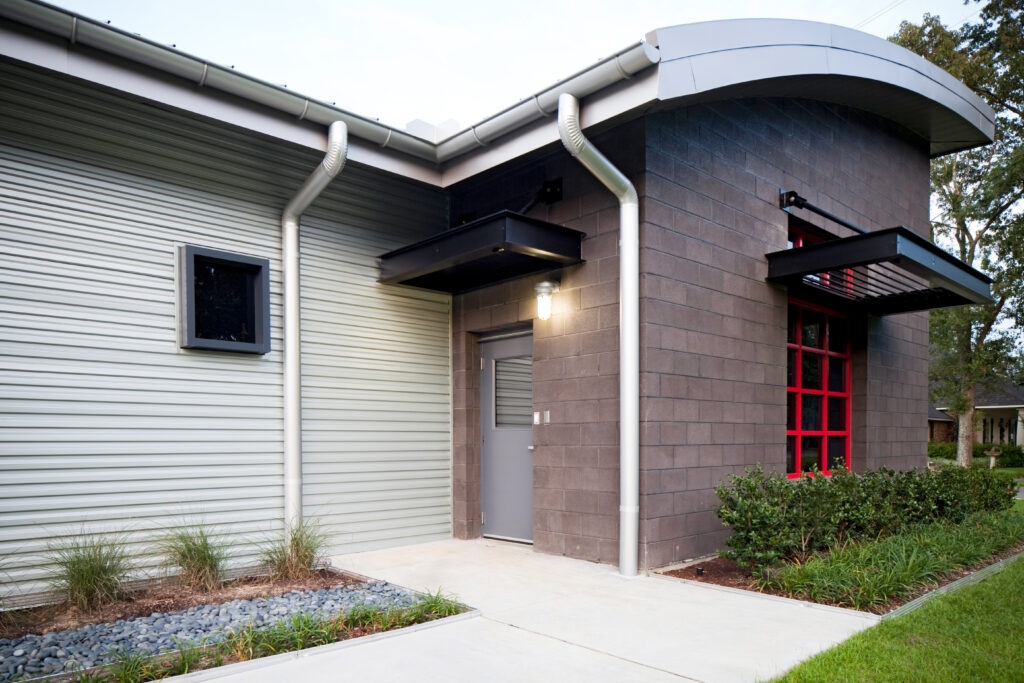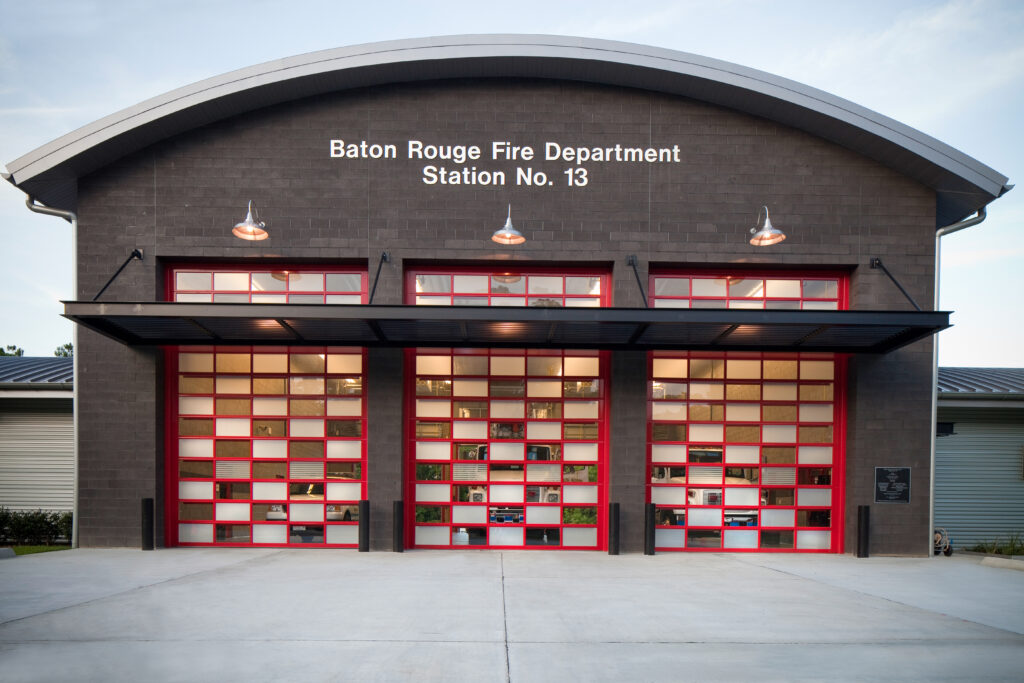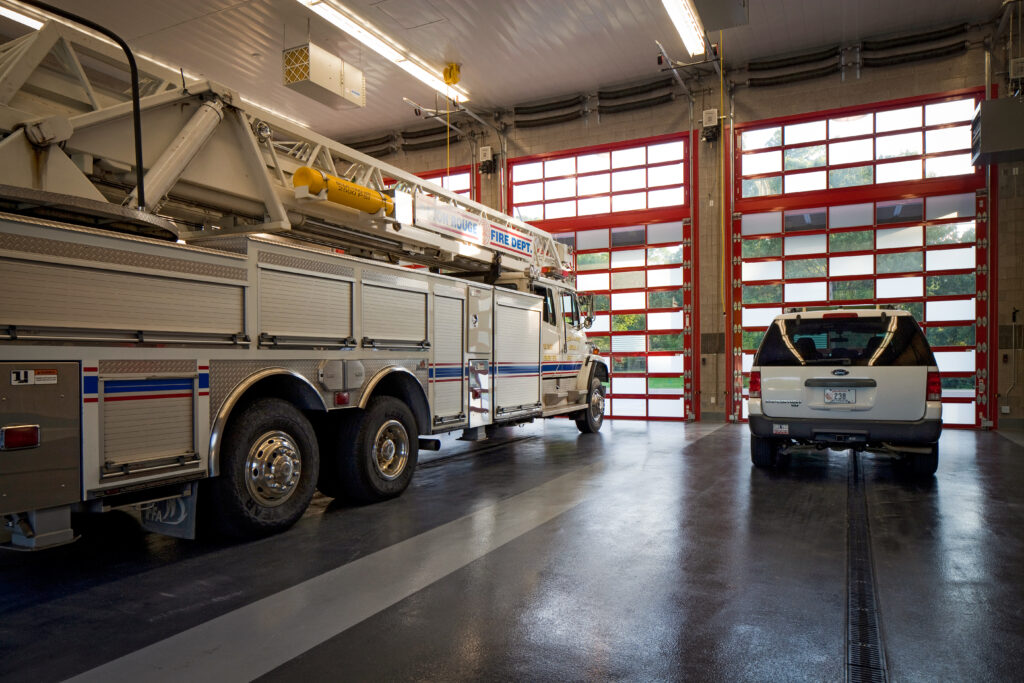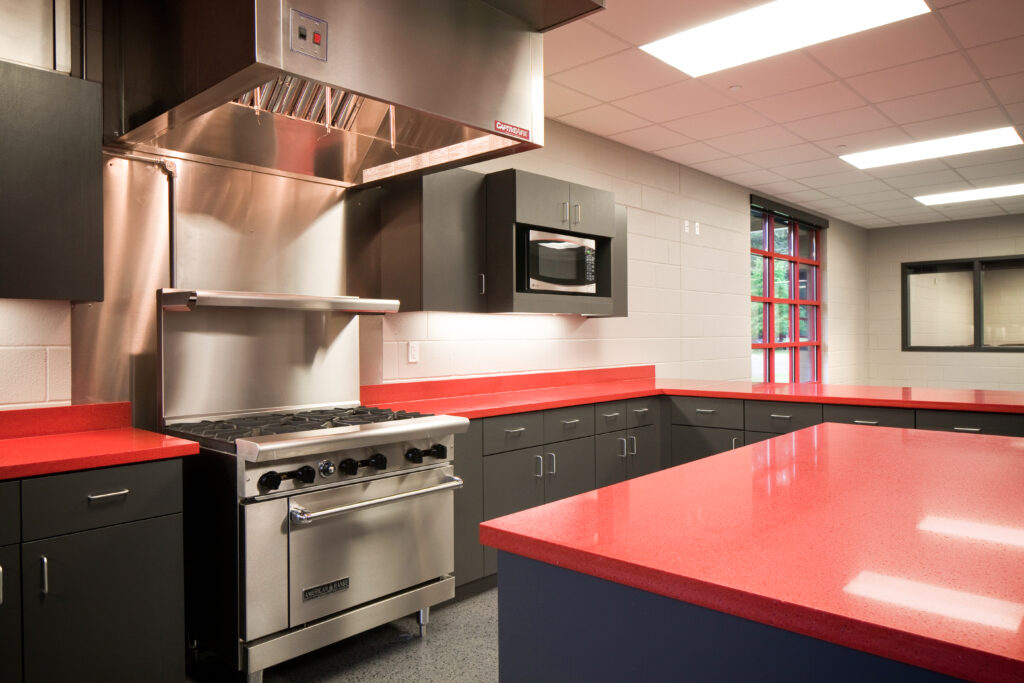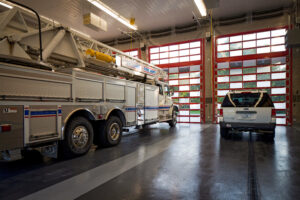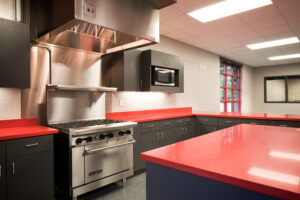The project consisted of a new station to replace the existing station that had exceeded its 50-year lifespan. The new station’s design allowed the existing station (next door) to remain functional throughout construction.
The building floor plan was based on a smaller prototype Crump Wilson originally developed for the fire department that was also expanded to include a rescue unit. Interior features include sleeping quarters for ten firefighting personnel, four emergency response personnel, and three suites for the station authorities. Support spaces include a kitchen, dining area, living area, fitness center, laundry facilities, lockers/showers/toilets, an outdoor covered patio, a three-truck bay garage, a radio room, and locker stations for emergency gear.
The large overhead doors, typical to all fire stations, are a powerful source of identity. We also believe fire trucks are fascinating objects that should be displayed – not hidden by opaque doors. This design efficacy led to the overhead doors in this project being the focal point of the façade.
The remaining aspects of the exterior design (form, proportions, color, materiality) sought to defer to the overhead doors visually. We achieved this by contrasting in color, texture, and massing. Through all these decisions, we prioritized durability, life cycle, and a resulting facility with a strong identity as a fire station.
